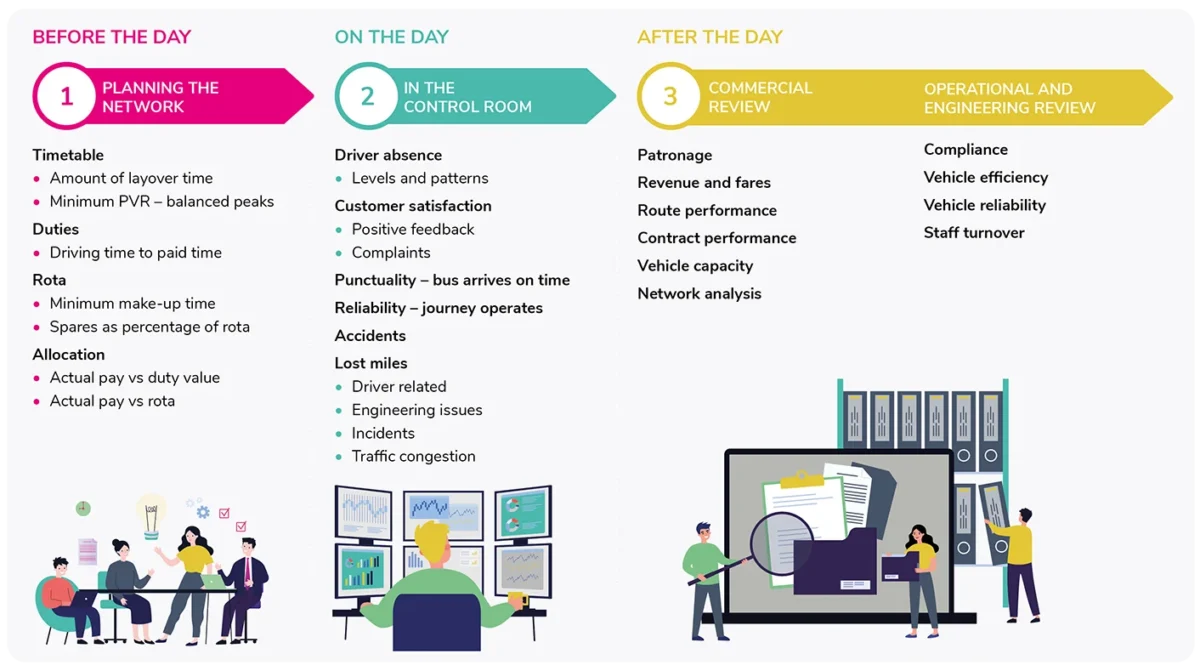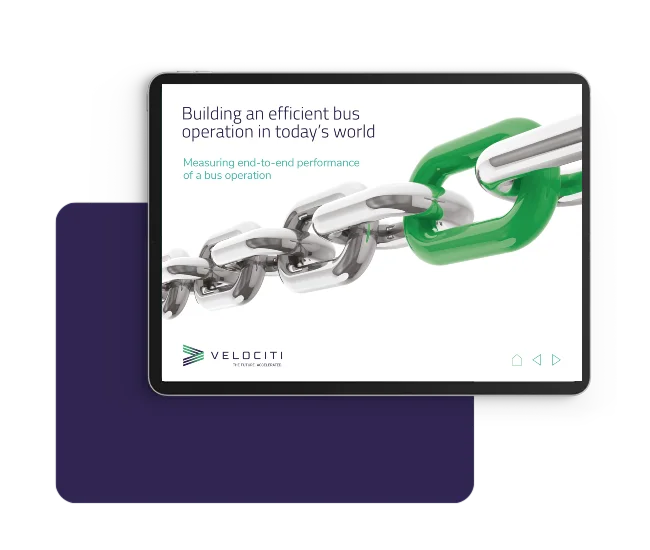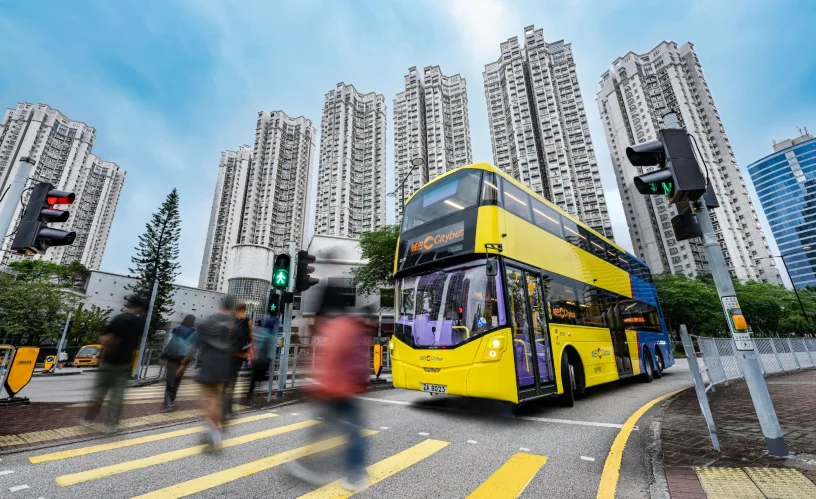Your challenges
Driving efficiency
Building an efficient operation in an ever-changing landscape is challenging and complex
CONTACT US


Evolving travel trends and funding changes
The bus industry is adjusting to changing patterns in peak time, recreational and concessionary travel. Government funding is also evolving, shifting from short-term recovery subsidies to a new funding mechanism aimed at supporting local transport authorities (LTAs) in delivering their Bus Service Improvement Plans (BSIPs), increasing their responsibility for bus network quality. In this context, there is a growing trend towards increased collaboration between bus operators and LTAs to maintain commercially viable networks.
To be fully prepared for what could be some challenging years ahead and to stay profitable in a changing landscape, bus operations need to run as efficiently as possible. However, managing a bus operation involves a complex chain of activities spanning ‘before-the-day’, ‘on-the-day’, and ‘after-the-day’ of operation. Achieving optimal efficiency requires seamless coordination across all links in this chain. Effective measurement and coordination among these components are essential for success and cannot be addressed in isolation.
Planning the network involves measuring key performance indicators (KPIs) for timetabling, vehicle workings, duties and rota. An efficient service hinges on achieving a harmonious balance among these elements. Getting this balance right is crucial for ensuring punctuality, maximising revenue and meeting customer expectations.
The control room needs KPIs which measure on-the-day performance such as punctuality, reliability, driver attendance and unplanned incidents. Customer feedback provides valuable insights into service quality, and analysing lost mileage helps understand reasons for disrupted journeys. To ensure information on the routes is shared and acted upon, control rooms need a system where they can record data quickly and easily, all in one place. This data can be used to measure efficiency.
Bus operators require a comprehensive overview of their network’s performance to effectively manage and enhance their service. Data plays a crucial role in this process, informing decisions on successes and areas needing improvement.
Experts in optimising efficiency
Our end-to-end solution covering operations ‘before the day,’ ‘on the day,’ and ‘after the day,’ we provide a pathway to enhancing performance, increasing patronage, and improving overall efficiency.

Latest news and industry insights

Building an efficient bus operation
A bus operation is a complex chain comprising numerous links, from network planning to service delivery and operational review, all of which must operate with maximum efficiency.
- For optimal efficiency, every link must harmonise with the others
- The difficulty is that maximising the efficiency of one link can sometimes detrimentally affect another.
This ebook explores the metrics to measure efficiency effectively to build a sustainable and profitable operation.
Experience and expertise
30+ years
developing leading passenger
transport solutions
- Market leader in driving efficiency for
passenger transport operators of all sizes - Software innovation driven by an in-depth
understanding of the passenger transport industry - Strong track record of quality delivery and
high customer satisfaction




